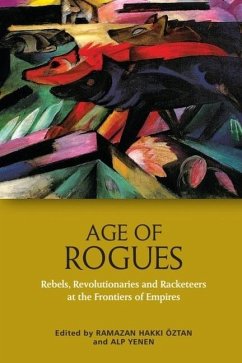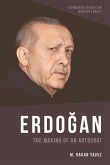'The scholarship is of the highest quality. A fine book.' Stephanie Cronin, St Antony's College, University of Oxford 'A rich and original work dedicated to one of the most compelling issues within late imperial history.' Ryan Gingeras, Naval Postgraduate School 'A crucial addition not just to the conversation about how these empires disintegrated but also to the analysis of the fractured and violent nation-states that replaced them.' Laura Robson, Penn State University 'A highly readable collection of cutting-edge research on agents of change.' Isa Blumi, Stockholm University A study of the frontier cultures of revolution that shaped the making of the modern Middle East Rebels, revolutionaries and racketeers played central roles in the violent process of imperial disintegration as it unfolded in the frontiers of the Ottoman, Habsburg, Romanov and Qajar empires. This is a history of these transgressive actors from the late 19th century to the interwar years, a time marked by similar, if-not-shared, revolutionary experiences and repertoires of contention across the connected geography of the Balkans, the Middle East and the Caucasus. Contributions by leading scholars engage with themes of historical and cultural legacies, contentious interactions within imperial regimes, and the biographical trajectory of men and women who challenged the political status quo of their time. Ramazan Hakkı Öztan teaches history at the Atatürk Institute for Modern Turkish History at Boğaziçi University, Istanbul. Alp Yenen is Assistant Professor of Modern Turkish History and Culture at the Institute for Area Studies at Leiden University. Front cover: Die Wölfe (Balkankrieg) [The Wolves (Balkan War), Franz Marc, 1913. Image courtesy of Wikimedia Commons/Charles Clifton, James G. Forsyth, and Charles W. Goodyear Funds 1951 Back cover: Stoyko Bakalov cheta, 1905, unknown photographer, image courtesy of Wikimedia Commons Key Features removed to make space: Key Features - Uses a novel conceptual framework that charts the rise of transgressive politics in the frontiers of empires - Includes a variety of biographical approaches to the key disruptive figures during the crisis of imperial and post-imperial regimes in the region - Represents a connected geography of imperial collapse and nation-state formation in 12 case study chapters - Engages with scholarship on intercommunal violence, revolutionary politics, and subaltern agency
Bitte wählen Sie Ihr Anliegen aus.
Rechnungen
Retourenschein anfordern
Bestellstatus
Storno








